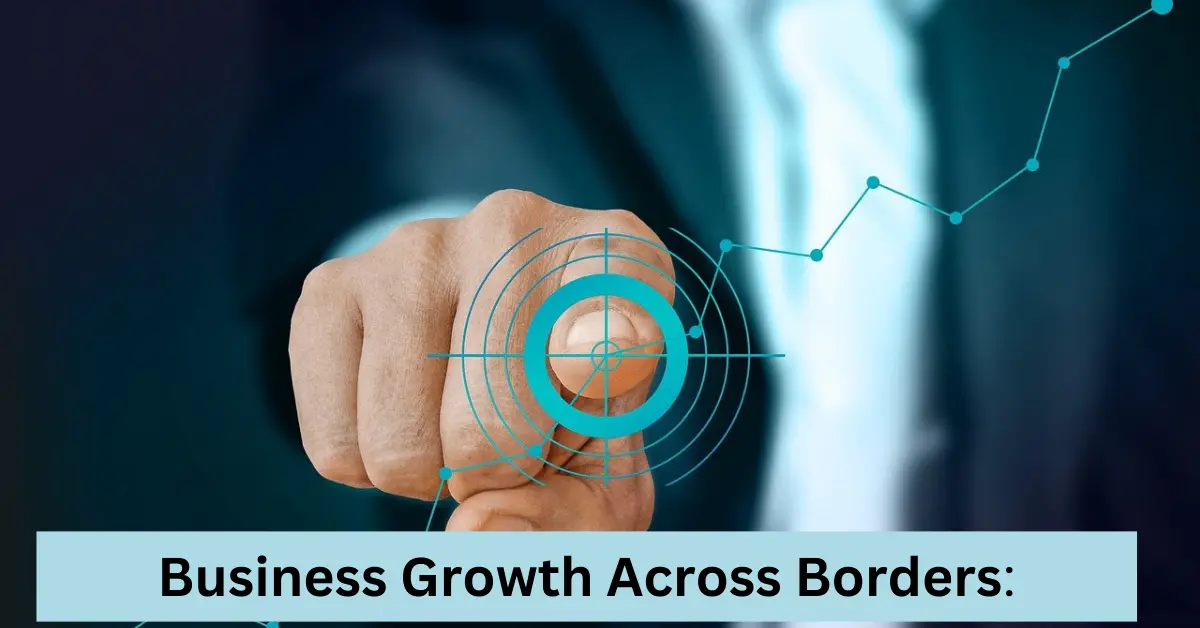The Economic Impact of IT: Shaping Businesses and Industries
Published: 12 Dec 2024
Explore how technology transforms the global economy by increasing productivity, creating new industries, and expanding international markets.
This article discusses technology’s positive impacts, including job creation and innovation, while addressing challenges such as the digital divide and cybersecurity risks. Learn how emerging technologies like AI, 5G, and blockchain are shaping the future of economic growth. The Economic Impact of IT

Introduction
Technology has always played a significant role in shaping economies, but in recent decades, the pace and scale of its impact have accelerated dramatically. From automation and artificial intelligence (AI) to cloud computing and blockchain, technological advancements are changing how businesses operate and reshaping entire industries. what is information technology
The global economy increasingly relies on digital tools and systems, and technology continues to drive economic growth, productivity, and job creation. However, with these advancements come challenges that must be addressed. In this article, we will explore the multifaceted ways technology is transforming the economy, providing both opportunities and challenges for individuals, businesses, and governments alike.
The Digital Revolution: Economic Landscape
Over the past few decades, technology has driven a profound shift in the way businesses operate and how economies function. The advent of the internet, mobile technology, and digital tools has interconnected the world like never before. This interconnectedness allows businesses to reach a global customer base, collaborate across borders, and innovate more efficiently. 5 Uses of Information Technology
Increased Productivity and Efficiency
One of the most immediate impacts of technology on the economy is the boost in productivity. Automation, machine learning, and artificial intelligence (AI) have revolutionized industries by improving efficiency and reducing the need for human intervention in many tasks. In manufacturing, robots can perform tasks faster, more accurately, and often at a lower cost than humans. In the service sector, AI-powered chatbots and virtual assistants are streamlining customer service, answering inquiries, and providing personalized recommendations.
Additionally, technology enables businesses to analyze vast amounts of data, allowing them to make informed decisions in real time. Cloud computing, for example, has made it possible for companies to scale their operations without the need for expensive physical infrastructure. The ability to store, process, and access data on demand has enabled businesses to reduce costs and improve operational efficiencies.
Creation of New Industries and Job Roles
Technology has not only impacted traditional industries but has also given rise to entirely new sectors of the economy. The tech industry itself—spanning software development, hardware manufacturing, cybersecurity, and digital marketing—is one of the fastest-growing economic sectors globally. Companies like Amazon, Google, and Microsoft, which were built on technological innovations, are now among the largest and most influential companies in the world.
Beyond the tech industry, other sectors such as healthcare, finance, and retail have also been transformed by technology. In healthcare, advancements in telemedicine, electronic health records (EHR), and AI-driven diagnostics have improved patient care and increased accessibility to medical services. In finance, fintech innovations such as mobile banking, digital wallets, and blockchain technology have democratized access to financial services, especially for people in underserved regions. How Information Technology is Revolutionizing
Creation of New Industries and Job Roles

Businesses of all sizes can reach international markets through the internet and digital tools.
E-commerce platforms, social media, and digital advertising enable even small businesses to go global.
Large corporations can collaborate easily with international partners and clients.
Consumer Convenience:
Technology allows consumers to access products and services globally with ease.
Platforms like Amazon and Alibaba offer the convenience of shopping from home and global delivery.
Efficiency in Global Trade:
Digital payment solutions simplify transactions.
Improved supply chain management enhances efficiency.
Transaction costs are significantly reduced.
Opportunities for Developing Economies:
Access to digital tools and the internet enables participation in the global economy.
Individuals in underserved areas can benefit from online education, remote work, and e-commerce.
technological Innovation and Economic Growth
At its core, technology drives innovation. As businesses adopt new technologies, they are able to develop new products and services, often leading to the creation of entirely new markets. For instance, the rise of smartphones not only transformed communication but also gave birth to app development, creating millions of jobs and spawning industries dedicated to mobile applications.
Similarly, the rapid expansion of AI and machine learning is fostering innovation in fields ranging from healthcare to logistics. The Economic Impact of IT AI is being used to create personalized experiences for consumers, streamline business operations, and improve decision-making processes. In the logistics industry, autonomous vehicles and drones are being used to revolutionize the transportation of goods, reducing costs and increasing efficiency.
Technological innovation also fosters economic growth by increasing the availability and quality of goods and services. As businesses use new technologies to improve their processes, they can offer more competitive prices and better-quality products, which benefits consumers. In turn, this leads to increased consumer spending, which drives economic activity. What is IoT (Internet of Things)
The Digital Divide: A Growing Challenge
While technology has created significant economic opportunities, it has also highlighted and exacerbated existing inequalities. The digital divide—the gap between those with access to modern technology and those without—remains one of the most pressing challenges in the digital economy.
In many developing regions, access to reliable internet, smartphones, and other technologies is limited, preventing individuals and businesses from fully participating in the global economy. This digital divide is particularly evident in rural areas, where infrastructure is often lacking, and in lower-income communities, where people may not have the resources to purchase or use technology.
To address this challenge, governments and organizations must invest in digital infrastructure, provide affordable access to technology, and ensure that individuals are equipped with the digital skills needed to thrive in the modern economy. Bridging the digital divide will not only promote economic inclusion but also unlock the potential for growth in emerging markets.
The Future of Technology and the Economy
As technology continues to evolve, so too will its impact on the global economy. Emerging technologies such as quantum computing, 5G, and blockchain are expected to bring about even greater changes in the coming years.
Quantum computing, for example, promises to revolutionize industries by solving complex problems that are currently beyond the capabilities of traditional computers. This has the potential to transform industries such as pharmaceuticals, finance, and energy by enabling faster and more accurate data analysis. what is cloud computing
5G technology is also set to have a profound impact on the economy by providing faster internet speeds and more reliable connections. This will enable the growth of new technologies such as the Internet of Things (IoT), smart cities, and autonomous vehicles, all of which will require a robust and fast digital infrastructure to operate effectively.
Blockchain technology, which underpins cryptocurrencies like Bitcoin, has the potential to revolutionize industries such as finance, supply chain management, and healthcare by providing secure, transparent, and decentralized platforms for conducting transactions.
As these emerging technologies continue to develop, they will create new opportunities for businesses and individuals while also raising new challenges. The Economic Impact of IT Governments, businesses, and individuals will need to adapt to these changes, ensuring that the benefits of technological progress are shared widely across society. technology and economy
Technology as an Economic Catalyst:
Technology has become the driving force behind economic development in both established and emerging markets. As digital transformation accelerates, businesses are increasingly leveraging innovative tools to improve operational efficiency, reduce costs, and open new revenue streams.
Global Digital Ecosystem:
The interconnectedness brought about by technology has resulted in a truly global digital ecosystem. International businesses are no longer bound by geographical limitations; digital tools, cloud computing, and e-commerce platforms have leveled the playing field, allowing companies of all sizes to tap into global markets.
The Rise of Smart Industries:
Emerging technologies like AI, IoT, and blockchain are ushering in the age of “smart industries.” These sectors use advanced data analytics, machine learning, and automation to streamline operations, enhance decision-making, and foster more sustainable practices. As a result, industries such as manufacturing, energy, and transportation are becoming more agile and efficient.
Shaping the Future of Work:
Technology is also reshaping the nature of work. Automation and AI have altered traditional job roles while creating new ones that demand digital literacy and specialized skills. The growing gig economy, driven by digital platforms, is offering workers the flexibility to pursue remote, freelance, or short-term opportunities from anywhere in the world. The Economic Impact of IT
conclusion
Technology has had a profound and transformative impact on the global economy. It has increased productivity, created new industries, expanded markets, and driven innovation across virtually every sector. However, The Economic Impact of IT the digital divide, and other challenges remind us that the benefits of technology must be shared equitably to ensure that all individuals and regions have the opportunity to participate in the digital economy.
Instructions: Answer the following multiple-choice questions based on the article above.
- What is one of the primary ways technology has increased productivity in industries?
A) By replacing human workers entirely
B) Through advancements like automation and artificial intelligence (AI)
C) By increasing the number of workers in industries
D) By eliminating the need for data analysis
Correct Answer: B) Through advancements like automation and artificial intelligence (AI)
- Which sector has benefited from telemedicine, electronic health records, and AI-driven diagnostics?
A) Finance
B) Healthcare
C) Retail
D) Education
Correct Answer: B) Healthcare
- How does global connectivity facilitated by technology benefit small businesses?
A) It forces them to compete only locally
B) It restricts their ability to advertise
C) It allows them to reach international markets through digital platforms
D) It increases operational costs
Correct Answer: C) It allows them to reach international markets through digital platforms
- What challenge does the digital divide highlight?
A) Limited resources for governments
B) The gap between individuals with and without access to modern technology
C) Over-reliance on traditional industries
D) Excessive use of blockchain
Correct Answer: B) The gap between individuals with and without access to modern technology
- Which emerging technology promises to transform industries by solving complex problems beyond current computer capabilities?
A) Cloud computing
B) Quantum computing
C) E-commerce platforms
D) Mobile banking
Correct Answer: B) Quantum computing
- What is one example of how blockchain technology could revolutionize industries?
A) By creating more competitive smartphones
B) By providing secure, transparent, and decentralized transaction platforms
C) By eliminating the need for internet access
D) By replacing all traditional banking systems
Correct Answer: B) By providing secure, transparent, and decentralized transaction platforms
- According to the article, what is a significant benefit of 5G technology?
A) Lower internet speeds
B) Reduced reliance on IoT
C) Growth of smart cities and autonomous vehicles
D) Elimination of cybersecurity threats
Correct Answer: C) Growth of smart cities and autonomous vehicles
- What key action is suggested to bridge the digital divide?
A) Increase reliance on traditional industries
B) Invest in digital infrastructure and affordable access
C) Reduce the use of emerging technologies
D) Focus on urban areas over rural ones
Correct Answer: B) Invest in digital infrastructure and affordable access
- How do advancements in AI and machine learning impact economic growth?
A) By eliminating the need for consumer spending
B) By fostering innovation and creating personalized experiences
C) By reducing access to global markets
D) By making traditional business operations obsolete
Correct Answer: B) By fostering innovation and creating personalized experiences
- What is the main message of the article’s conclusion?
A) Technology’s benefits are equally distributed across all regions
B) The digital economy has eliminated all economic inequalities
C) The benefits of technology must be shared equitably to ensure inclusivity
D) Traditional industries should resist technological advancements
Correct Answer: C) The benefits of technology must be shared equitably to ensure inclusivity
The Economic Impact of IT
Technology plays a crucial role in boosting economic growth by increasing productivity, streamlining operations, and creating new industries. Automation, artificial intelligence (AI), and cloud computing help businesses reduce costs and improve efficiency, which leads to more competitive markets. Additionally, technology fosters innovation, enabling the development of new products, services, and industries. For example, sectors like fintech, healthcare technology, and digital marketing have experienced rapid growth, creating millions of new jobs worldwide. As businesses embrace digital tools and emerging technologies, they not only improve their existing operations but also generate new opportunities for skilled workers in tech, AI, data science, and other fields
Despite its many benefits, technology also brings challenges. One of the most significant is the digital divide, which refers to the gap between those with access to modern technology and those without. In many developing regions or rural areas, limited access to the internet, smartphones, and other digital tools can prevent individuals and businesses from fully participating in the global economy. Additionally, with the rise of digital tools, cybersecurity risks have become a growing concern. As more data is stored and transmitted online, the potential for cyberattacks and data breaches increases. Governments and businesses must work together to invest in digital infrastructure, ensure equitable access to technology, and address cybersecurity risks to maximize the benefits of technological advancements while minimizing their drawbacks.
The Economic Impact of IT:
Proudly powered by WordPress






